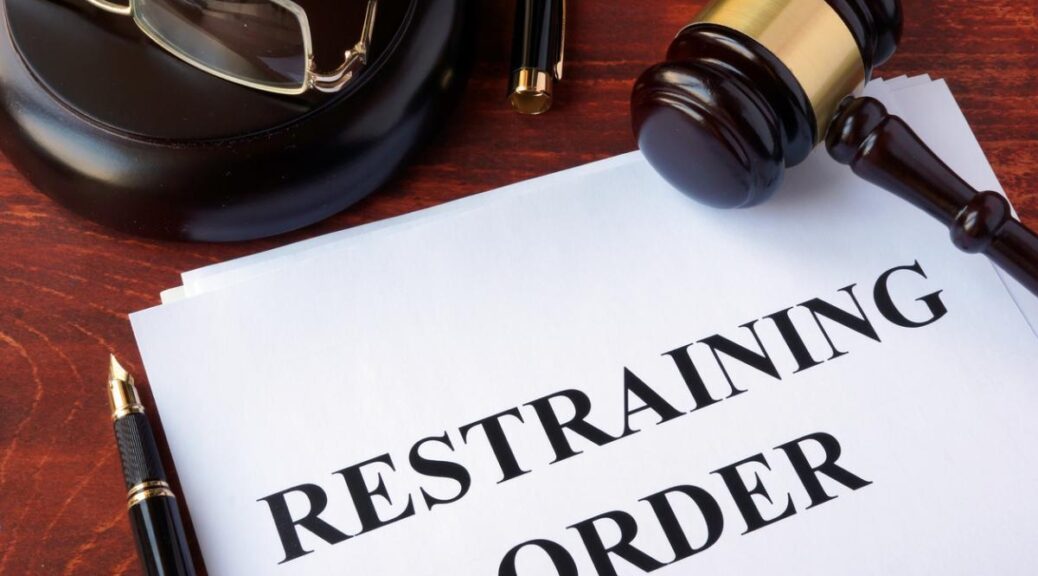Facing a restraining order can be a daunting experience, especially in the emotionally charged realm of family law. Whether you’ve been served with a temporary restraining order (TRO) or are navigating the complexities of a permanent order, the significance of having a knowledgeable advocate in your corner cannot be overstated.
A Certified California Family Law Specialist, like Judy Burger, possesses the relevant expertise and skills to mount a robust defense against restraining orders, ensuring that your rights and interests are protected throughout the legal process.
Understanding Restraining Orders
Restraining orders are legal orders issued by a court to protect individuals from harassment, abuse, or threats. In California, there are several types of restraining orders, but they typically fall into the following categories:
- Domestic Violence Restraining Orders: These orders protect individuals from abuse or threats by someone they have a close relationship with, such as a spouse, partner, family member, or cohabitant.
- Civil Harassment Restraining Orders: These orders offer protection against harassment from individuals who do not have a significant relationship with the victim, such as neighbors, acquaintances, or strangers.
- Elder or Dependent Adult Abuse Restraining Orders: Specifically designed to protect elderly individuals or dependent adults from abuse or neglect.
- Workplace Violence Restraining Orders: These orders can be issued to protect employees from threats or violence in the workplace.
Reasons for a Restraining Order
There are various reasons one might file for a restraining order, including:
- Domestic Violence: Allegations of physical harm, threats of violence, or psychological abuse.
- Stalking or Harassment: Continuous unwanted contact or surveillance that causes distress or fear.
- Child Custody Issues: Concerns about a parent’s behavior affecting the safety and well-being of a child.
- Threats of Harm: Verbal or written threats that create fear of imminent harm.
- Substance Abuse: When an individual’s substance abuse issues pose a threat to themselves or others.
While these orders are intended to safeguard individuals, they can be based on misunderstandings, miscommunications, or false accusations. Consequently, facing a restraining order can significantly affect one’s personal life, professional relationships, and even parental rights.
The Importance of Legal Representation
When you are served with a restraining order, it is crucial to seek legal representation immediately. There are several reasons for this:
Understanding the Legal Process
Restraining orders involve complex legal procedures. A family law specialist can help you navigate the system, ensuring that you meet all necessary deadlines and follow all required protocols.
Crafting a Defense Strategy
A knowledgeable attorney will help develop a defense strategy tailored to the specifics of your case. Whether you aim to contest the order or seek modifications, having professional guidance can significantly influence the outcome.
Navigating Emotional Turmoil
The experience of facing allegations can be intensely stressful and emotionally taxing. Having a seasoned attorney by your side can alleviate some of this stress, allowing you to focus on your well-being while they handle the legal minutiae.
Representation in Court
If the case proceeds to a hearing, having a legal advocate who understands courtroom dynamics and is skilled at presenting evidence and arguments is crucial. They can present your case effectively and aim for a favorable ruling.
Protecting Future Rights
An order can have long-lasting implications, including impacting child custody arrangements or professional opportunities. A family law specialist will work to protect your rights and reduce adverse consequences.
How a Certified Family Law Specialist Can Help
A Certified California Family Law Specialist, like Judy Burger, brings specialized knowledge and experience that is invaluable in defending against a restraining order. Here are some of the benefits of working with a specialist:
- In-Depth Knowledge of Family Law: Judy’s certification indicates a significant level of expertise in family law, including the specifics related to restraining orders. This enables her to offer personalized advice and representation tailored to the nuances of California law.
- Experience with Restraining Orders: Understanding the intricacies of restraining orders requires an attorney who is well-versed in past cases and has successfully employed defense strategies. Judy’s experience equips her to tackle your case effectively.
- Personalized Attention: Judy takes the time to listen to her clients and understand their unique situations. This customized approach ensures that your specific circumstances and concerns are addressed in the development of your legal strategy.
- Mediation Skills: A family law specialist is skilled at conflict resolution. In cases where there could be room for negotiation, Judy can help facilitate productive dialogue aimed at resolving issues amicably.
- Emotional Support and Resources: Beyond legal services, Judy recognizes the emotional strain that accompanies such cases and can connect clients with additional support resources, including counseling and support groups.
FAQs About Restraining Orders
How long does a restraining order last in California?
A temporary restraining order lasts until the court’s hearing, usually about 21 days. If a permanent restraining order is granted, it can last up to five years, with the possibility of renewal.
Can you contest a restraining order?
Yes, a person served with a restraining order has the right to contest it in court. A skilled attorney can help prepare a defense and present evidence to challenge the order.
What evidence is needed to support a restraining order?
The petitioner must provide evidence demonstrating a credible threat of harm or harassment, which may include testimony, photographs, police reports, or witness statements.
Can I communicate with the person who has the restraining order against me?
Generally, no. Violating a restraining order can result in legal consequences. Always consult your attorney for guidance on permissible communication.
What happens if a restraining order is violated?
Violating a restraining order can lead to criminal charges, fines, or imprisonment. It is essential to comply with the order while seeking legal advice.
CA Restraining Order Defense Lawyer
Facing a restraining order is a serious matter that requires immediate legal attention. With the help of a Certified California Family Law Specialist like Judy Burger, you have a better chance of crafting a strong defense, protecting your rights, and mitigating the potential impacts on your life.
Don’t navigate this complex process alone—reach out for professional legal support that understands your unique situation and can advocate for your interests.




